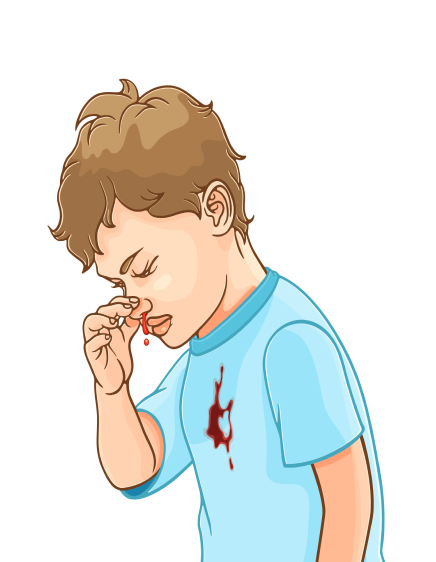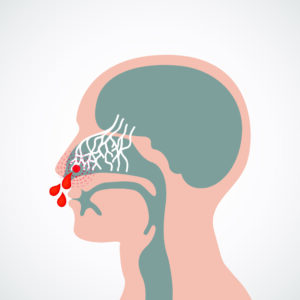Recurrent Epistaxis: Understanding and Managing Persistent Nosebleeds

Recurrent epistaxis, or persistent nosebleeds, can be a distressing and disruptive condition. In this blog, we will delve into the causes, potential underlying conditions, and strategies for managing and preventing recurrent epistaxis.
Causes and Underlying Conditions:
Recurrent epistaxis can be caused by various factors, including:
- Nasal Irritation: Dry air, allergens, irritants, or nasal trauma can lead to the repeated occurrence of nosebleeds.
- Structural Abnormalities: Deviated septum, nasal polyps, or blood vessel abnormalities can contribute to persistent nosebleeds.
- Chronic Inflammation: Conditions such as sinusitis or allergies can cause ongoing inflammation in the nasal passages, making the blood vessels more susceptible to bleeding.
- Blood Disorders: Certain blood disorders, such as von Willebrand disease or hereditary hemorrhagic telangiectasia (HHT), can result in recurrent nosebleeds.

Management and Prevention:
Managing recurrent epistaxis involves a multifaceted approach:
- Hydration: Staying well-hydrated helps maintain the moisture of the nasal passages, reducing the risk of nosebleeds.
- Nasal Moisturization: Using saline nasal sprays or applying petroleum jelly products specifically made for the inside of the nostrils can keep the nasal tissues moist and less prone to bleeding.
- Humidification: Using a humidifier at home, especially during dry seasons or in dry climates, helps increase humidity levels, preventing nasal dryness.
- Avoiding Nasal Irritants: Steer clear of irritants like tobacco smoke, strong chemicals, or allergens that can trigger or worsen nosebleeds.
- Gentle Nasal Care: Refrain from forceful nose-blowing or picking, as these actions can further irritate the nasal passages.
Seeking Medical Evaluation:
If recurrent epistaxis persists despite preventive measures, seeking medical evaluation is essential. A healthcare professional can identify any underlying conditions contributing to the nosebleeds and recommend appropriate treatment options. These may include nasal cauterization, in which blood vessels are sealed to prevent bleeding, or surgical interventions for structural abnormalities.
Recurrent epistaxis can disrupt daily life and cause distress, but understanding its causes and implementing preventive measures can help manage this condition effectively. By keeping the nasal passages moisturized, avoiding irritants, and seeking medical evaluation if necessary, individuals can find relief and regain control over persistent nosebleeds. Remember, a proactive approach to nasal health is key to minimizing the impact of recurrent epistaxis on your overall well-being.

